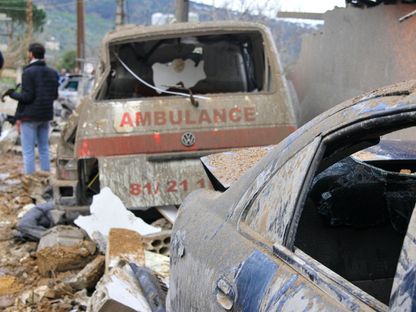WHO Lebanon’s Healthcare System Strained as 13% of Hospitals Halt or Reduce Services Amid Intensified Conflict
The World Health Organization (WHO) has reported that 13% of Lebanon’s hospitals have ceased operations or scaled back services, severely limiting access to essential healthcare amid the ongoing conflict.
In a statement on Tuesday, WHO confirmed that 136 attacks on health facilities have occurred since October, resulting in the deaths of 212 health workers, including 70 fatalities in the past week alone. This disruption has compounded the humanitarian crisis as Israeli airstrikes continue to target regions across Lebanon, including the southern suburbs of Beirut.
The United Nations Office for the Coordination of Humanitarian Affairs (OCHA) highlighted the widespread impact on civilians, aid workers, and health professionals as airstrikes and artillery bombardments force more people to flee their homes.
In response to the escalating needs, UN health partners in Lebanon have been assisting the government’s relief efforts. By November 14, over 300 health centers had received critical medicines to address the growing demand among displaced populations.
The United Nations Children’s Fund (UNICEF) reported that approximately one million people are in urgent need of water and sanitation support. Since mid-September, UNICEF has been rehabilitating water facilities, benefiting around 1.5 million residents.
Additionally, the United Nations High Commissioner for Refugees (UNHCR) has distributed more than 428,000 relief items to approximately 230,000 displaced individuals across Lebanon since September.
Lebanon has endured over a year of intensified Israeli attacks, which have surged in frequency since late September. These assaults have resulted in thousands of civilian casualties and displaced more than one million people, creating a severe humanitarian crisis.
The combined impact of relentless aggression and the collapse of healthcare infrastructure underscores the urgent need for international intervention to address the suffering of Lebanon’s population.

